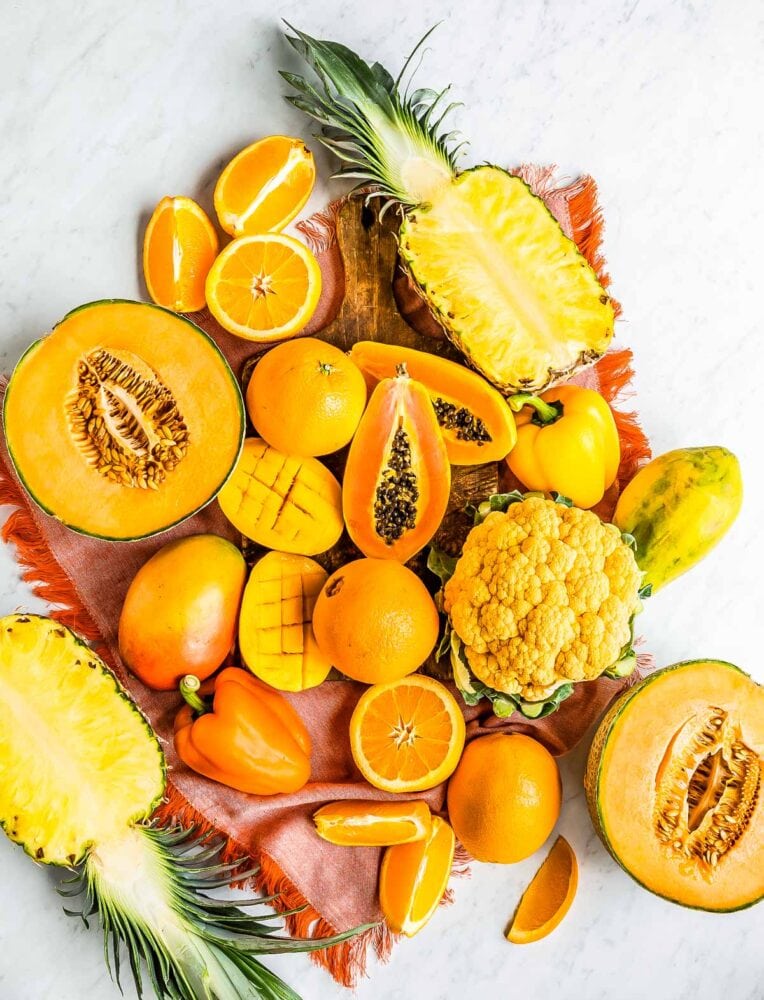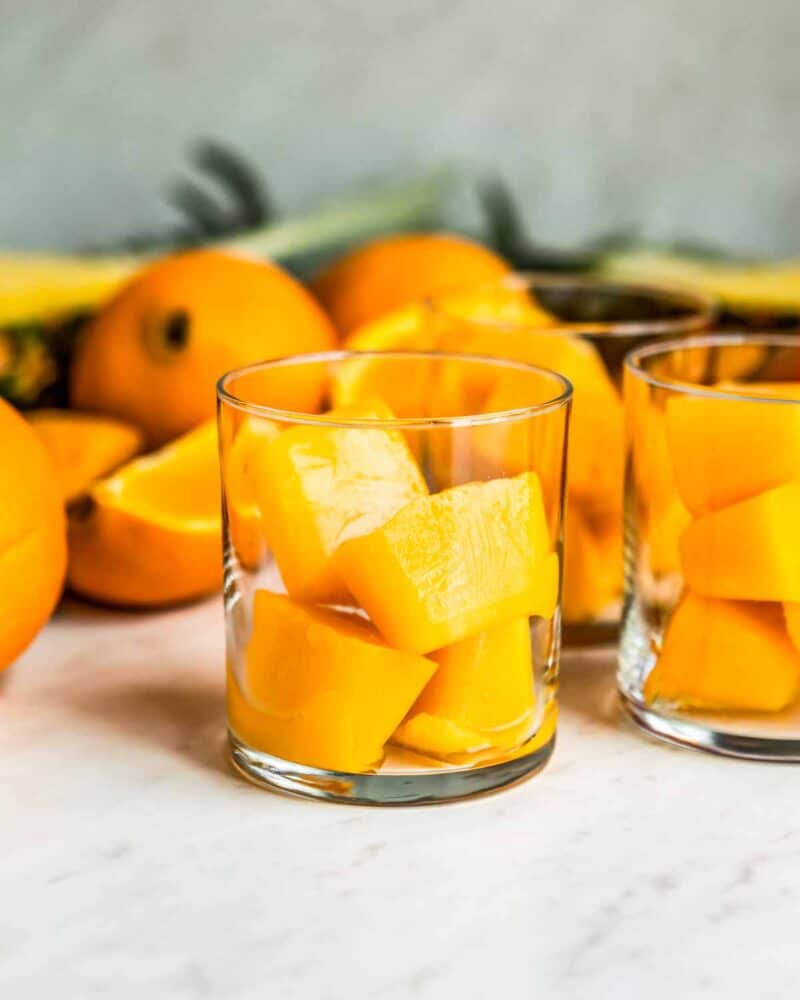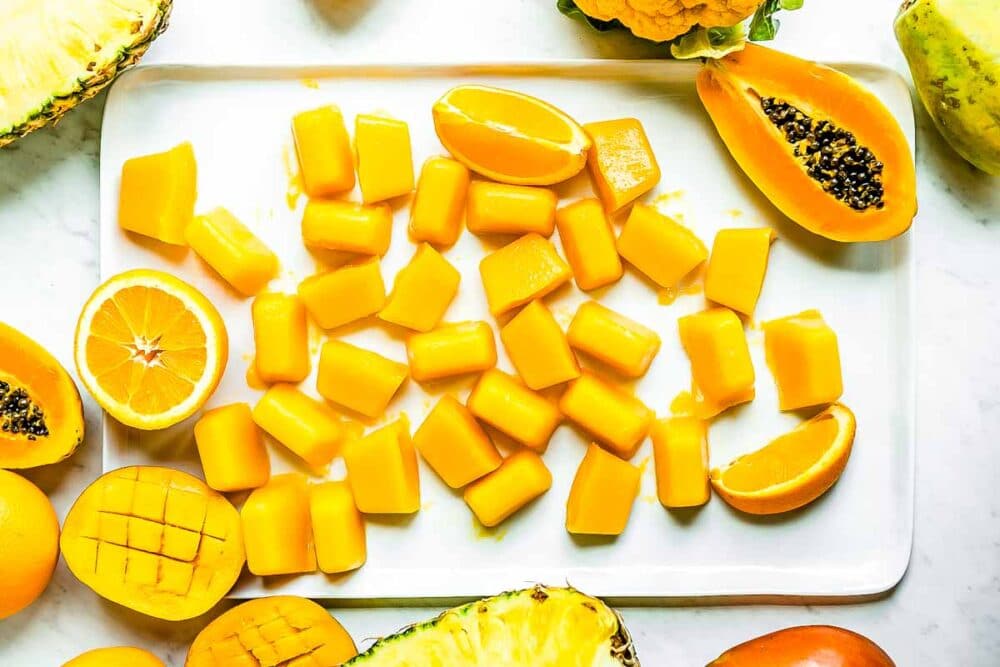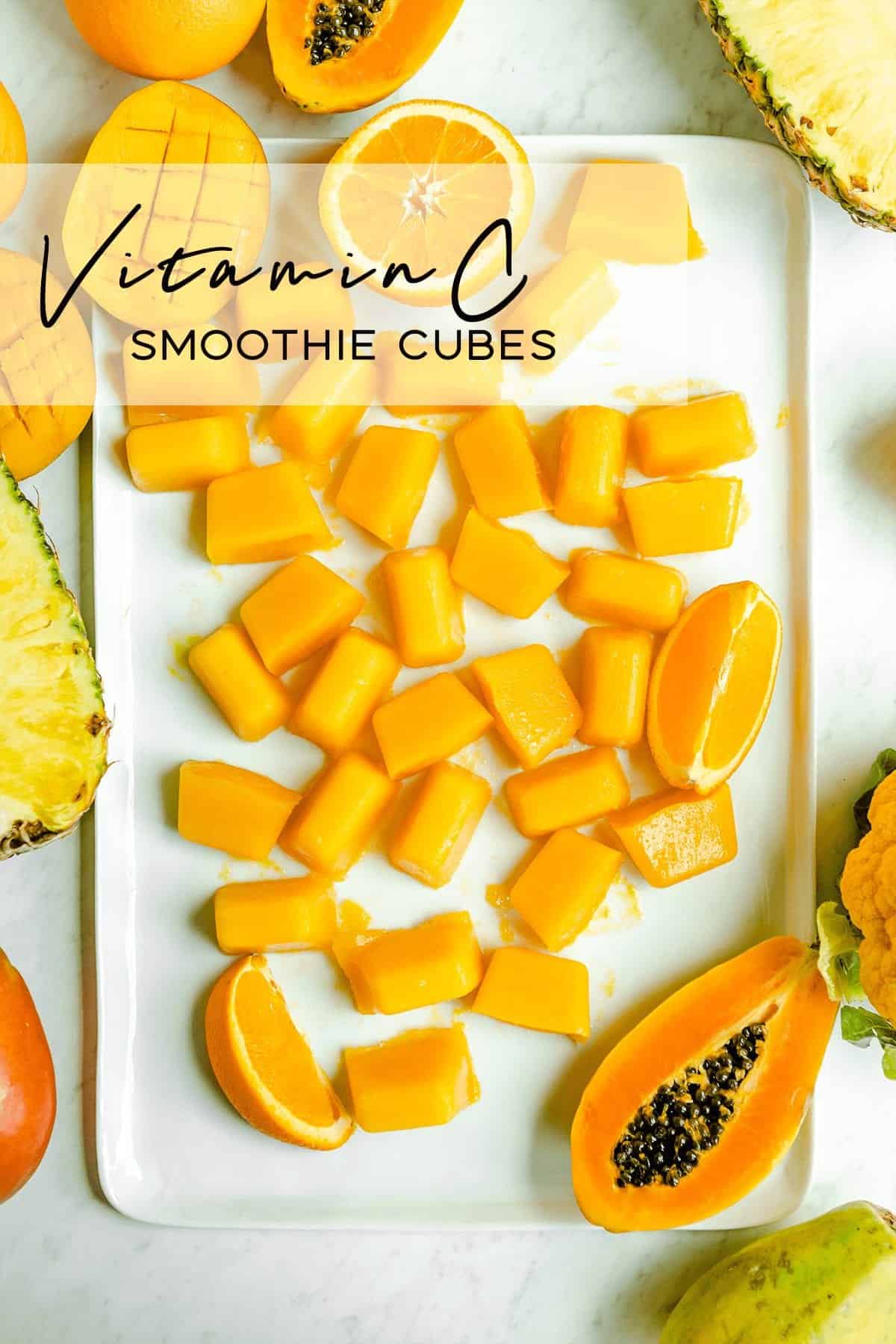NEW!
Whenever there’s a chance of catching a cold, I try to boost my vitamin C intake to ensure my immune system is at its best. When I was in college, I relied to Emergen-C (the powdered drink), yet these past few years I’ve used foods that are high in vitamin C. I find that natural vitamin C gives me the benefits I need to be at my best.
Natural vitamin C vs ascorbic acid
If you’ve ever taken a vitamin C supplement, then it was probably in the form of ascorbic acid. So what is this compound, and which is it really beneficial?
Vitamin C, also known as ascorbate, can be chemically derived. This synthetic form is called ascorbic acid. Just pick up a packaged food item, and you’ll probably see this listed as an ingredient, or in parenthesis next to the vitamin C column. Many foods are fortified with the synthetic form of this vitamin. Studies show that taking a vitamin C supplement is fairly similar to taking naturally derived vitamin C, yet natural vitamin C has more benefits, because of all the other nutrients derived from eating whole foods.
Honestly, most of us aren’t deficient in vitamin C, as long as we regularly eat fruits and vegetables. This vitamin is found in many common foods, so no need to stress about not getting it if you’re drinking daily green smoothies!

Foods high in vitamin C
Vitamin C occurs naturally in a whole host of fruits and vegetables. Some delicious, whole foods that give me natural vitamin C benefits are:
- Citrus fruits are a great source of vitamin C. These include oranges, grapefruit, guava, kiwi, lemons, lime, pineapple, and more.
- Papaya
- Cantelope
- Strawberries
- Broccoli
- Cauliflower
- Brussels Sprouts
- Peppers
- Black currants
- Potatoes
- Tomatoes
- Kale (and lots of other leafy greens)
- Cauliflower
Make sure to get around 65-90mg of vitamin C a day as a healthy adult, and around 120mg a day when breastfeeding, to get the benefits. To put this in practical terms, 1 orange has approximately 51mg of vitamin C. 1 cup chopped kale has 80 mg. Basically, a green smoothie a day will keep your body happy and vitamin C-boosted.
Green smoothies with natural vitamin C
If you want to give your body the best natural boost in vitamin C benefits, then blend up one of these delicious recipes:
- Kiwi strawberry smoothie
- Strawberry carrot smoothie
- Pineapple ginger smoothie
- Post workout green smoothie
- Smoothie for bloating
- Tropical kale smoothie
- Kale mango smoothie
All the recipes on my blog have the nutrition facts below the recipe, so just scroll on down the post to check out how much vitamin C is in any recipe you want to blend.
Savory recipes to boost the immune system
If you want to make a meal using foods high in vitamin C benefits, then plant based is the way to go. Vegetables are a great source of vitamins and minerals, and can actually taste good too! If soup is your thing, try a vegetarian tortilla soup, vegan pumpkin soup, or bell pepper + sweet potato soup. If you want more solid meal, then these tacos de papas or my famous loaded sweet potatoes would be perfect.

More benefits of vitamin C
Did you know that vitamin C does more than boost the immune system? Your body needs vitamin C to produce collagen (hello healthy skin + hair), help the brain transmit messages properly, as well as help the body absorb iron. The antioxidants in vitamin C help the body fight certain cancers, along with aiding in wound care.
Repeat after me: I promise to make sure my diet has enough vitamin C every day!

How to make vitamin C smoothie cubes
First, smoothie cubes are something I love. A smoothie cube is a concentrated blend of fruits, vegetables and leafy greens, liquids, and/or other ingredients (depending on the recipe) that I like to add to my smoothies for an extra boost of nutrients. I’ve created several smoothie cube recipes to get specific natural benefits, just like these smoothie cubes to boost vitamin C.

The vitamin C smoothie cubes are great to add to your regular daily smoothie or when you feel a cold coming on. Four cubes is roughly equal to 1/2 cup fruit. So the cubes can be substituted for some of the fruit or added in place of the fruit – totally up to you; the vitamin C benefits will be felt either way!
Making smoothie cubes is very simple. Just blend all of the ingredients until smooth and pour into ice cube trays. Let them freeze until firm then store in the freezer to have on hand whenever you need an extra dose of the immune boosting vitamins.

How do you like to get in all the vitamins and minerals you can each day? I love when I can get in a vitamin naturally, and make the most of the benefits that nutrient provides. Let me know if you make these vitamin C cubes by leaving a comment + review below, because I’d love to know how they turned out!
Print
Vitamin C Smoothie Cubes
 Prep Time: 4 hours
Prep Time: 4 hours Cook Time: 0 hours
Cook Time: 0 hours Total Time: 4 hours
Total Time: 4 hours Yield: 8 servings
Yield: 8 servings Category: Smoothie
Category: Smoothie Method: Blending
Method: Blending Cuisine: Healthy
Cuisine: Healthy
Description
These Vitamin C Smoothie Cubes will help your immune system function properly as well as having other benefits to the integumentary system (or skin) which also helps fight germs and disease.
Ingredients
- 2 large navel oranges, peeled and halved
- 1 cup papaya, cubed or sliced
- 1 cup pineapple cubes or tidbits
- 1 mango, peeled, cubed or sliced
- 1 cup orange cauliflower florets (see notes)
Instructions
- Place ingredient into the blender in the order given.
- Puree until smooth. It should not need any liquid because of the oranges, but if it does, add a little water or orange juice.
- Spoon into two 16-well ice cube trays, about 2 to 2 1/2 tablespoons per well. Freeze until firm, at least 3-4 hours, or overnight. Transfer to an airtight, freezer-safe container. Will keep for several weeks in a normal freezer, or up to six months in a deep freezer.
- To use: add 4 Vitamin C Smoothie Cubes to your favorite smoothie to replace 1/2 cup fruit. Add more or less cubes depending on preference. Makes enough for 8 smoothies.
Notes
- Substitute any vitamin C-rich fruit or vegetable, such as strawberries, sweet bell pepper, cauliflower, cantaloupe, kiwi, or others in place of 1+ of the fruits listed above. Nutrition information will change with any substitutions.
- Frozen fruit and cauliflower can be substituted for the fresh fruit.
Keywords: smoothie, vitamin c, frozen fruit, immune booster, vitamin c smoothie
from
https://simplegreensmoothies.com/recipes/vitamin-c-benefits
No comments:
Post a Comment